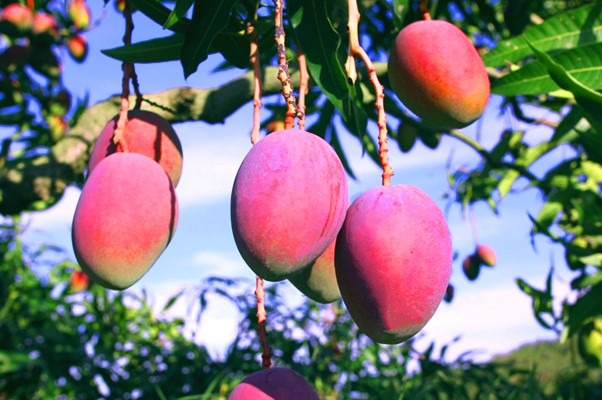玉井區位於台南市東側,西臨大內區、山上區,東臨楠西區,南接左鎮區、南化區,面積約為76.3662平方公里,地形為高陵山坡,四面環山,中央形成天然盆地。
在轄區面積約為76.3662平方公里,耕地面積約占四千公頃,主要以生產熱帶果樹為主,約七成種植芒果,其中以愛文品種芒果占最大比例。
由於玉井是外來品種愛文芒果的發源地之一,且位居全國種植面積最大產地,因此擁有「芒果故鄉」和「芒果王國」雙重美稱。
可歌可泣的歷史文化
玉井區舊稱「大武壟」,係曹族四社熟番(噍吧哖社、芒仔芒社、宵里社及今楠西區的茄拔社)原住民所居住。後因大目降(今新化鎮)之西拉雅族在鄭氏時代受漢人侵占,轉而驅逐曹族四社,佔據其地。民國九年,日本人佔領臺灣,才以「噍吧哖」的日語Tamai近音「玉井」來更改地名。當時日本人畫分噍吧哖為台南州新化郡玉井庄,其管轄權屬台南州新化郡,直到光復後才改稱玉井鄉,民國99年(西元2010年)台南縣市合併改制為直轄市(台南市),並」於民國99年12月25日正式改稱為「玉井區」。
日治大正四年(西元1915年),抗日領導人余清芳(1879年-1915年,屏東市人),在噍吧哖發動抗日行動,史稱「西來庵事件」,是台灣史上規模最大、犧牲人數最多的武裝抗日事件。因主戰場發生在玉井區,故稱該事件為後來轟動台灣的「噍吧哖事件」。為了緬懷先烈捨身取義精神,在玉井區東郊虎頭山上建立「余清芳抗日紀念碑」,供後人憑弔追思。
玉井區農會默默陪伴著在地農民,扮演農業發展、繁榮在地經濟、教育與社會安定的角色,從糖業到芒果產業,走過了一世紀酸甜苦辣,回想起來心酸中帶著絲絲甜蜜,就像芒果乾系列產品酸酸甜甜好滋味,充滿回味與時代的深層記憶!百年農會歷史就像一個時光寶盒,記錄著農業的生活記憶,收納著農會、農民與土地不可割捨的濃濃情感,堆積著玉井甜蜜風景。農會是每一個玉井人陶然與眷念的居心地與依歸 。


Yujing District is located on the eastern side of Tainan City, bordered to the west by Danei District and Shanshang District, to the east by Nanshi District, and to the south by Zuozhen District and Nanhua District. It covers an area of approximately 76.3662 square kilometers, characterized by high hills and slopes, surrounded by mountains, with a natural basin formed in the center.
Within its jurisdiction, the area is about 76.3662 square kilometers, with approximately 4,000 hectares of arable land, primarily used for the production of tropical fruit trees. About 70% of the land is planted with mangoes, with the Irwin variety being the most predominant.
Since Yu-Ching is one of the origins of the imported variety of Irwin mango and has the largest planting area in the country, it is known by the dual titles of "Hometown of Mangoes" and "Kingdom of Mangoes."
A history and culture that is both moving and tear-jerking...
Yujing District was formerly known as "Dawulon," inhabited by the Tsao tribe's four communities of the Siraya people (Jiabalan, Mangzai Mang, Xiaoli, and the Qaba community in today's Nanshi District). Later, due to the invasion of Han people during the Zheng period, the Siraya people of Damujiang (now Xinhua Township) drove out the Tsao tribe's four communities and occupied the area. In the ninth year of the Republic of China, when the Japanese occupied Taiwan, they changed the name of "Jiao Ba Nian" to Yujing based on the Japanese pronunciation "Tamai." At that time, the Japanese divided Jiao Ba Nian into Yujing in the Xinhua District of Tainan Prefecture, and its jurisdiction belonged to the Xinhua District of Tainan Prefecture. It was not until after the restoration that it was renamed Yujing District.
In the fourth year of the Taisho era under Japanese rule (1915 AD), the anti-Japanese leader Yu Qingfang (1879-1915, from Pingtung City) launched an anti-Japanese action in Zhaobaren, historically known as the "Xilai'an Incident." This was the largest and deadliest armed anti-Japanese event in Taiwan's history. Since the main battlefield was in the Yujing District, the event later became known as the "Zhaobaren Incident." To commemorate the selfless spirit of the martyrs, the "Yu Qingfang Anti-Japanese War Memorial" was established on Huxi Mountain in the eastern suburbs of Yujing District, allowing future generations to pay their respects and remember.
The Yujing District Farmers' Association silently accompanies local farmers, playing a role in agricultural development, local economic prosperity, education, and social stability. From the sugar industry to the mango industry, it has traversed a century of sweet and sour experiences. Looking back, there is a bittersweet nostalgia, much like the sweet and sour taste of the mango dried fruit series. Full of nostalgia and deep memories of the era! The century-old history of the agricultural association is like a time capsule, recording the living memories of agriculture, encompassing the inseparable emotions of the association, farmers, and land, and accumulating the sweet scenery of Yujing. The agricultural association is the cherished and beloved home and refuge of every Yujingnese.

Connect with us 與我們聯繫
Support 代購服務
info.foroma@gmail.com
© 2025. All rights reserved.
